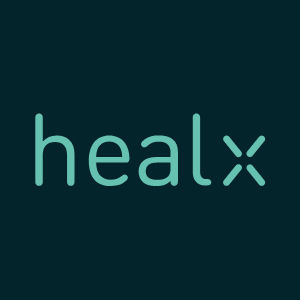预约演示
更新于:2025-05-07
Plexiform Neurofibroma
丛状神经纤维瘤
更新于:2025-05-07
基本信息
别名 Elephantiasis Neuromatoses、Elephantiasis Neuromatosis、Neurofibroma, Plexiform + [27] |
简介 A type of neurofibroma manifesting as a diffuse overgrowth of subcutaneous tissue, usually involving the face, scalp, neck, and chest but occasionally occurring in the abdomen or pelvis. The tumors tend to progress, and may extend along nerve roots to eventually involve the spinal roots and spinal cord. This process is almost always a manifestation of NEUROFIBROMATOSIS 1. (From Adams et al., Principles of Neurology, 6th ed, p1016; J Pediatr 1997 Nov;131(5):678-82) |
关联
16
项与 丛状神经纤维瘤 相关的药物作用机制 MEK1抑制剂 [+1] |
在研机构 |
最高研发阶段批准上市 |
首次获批国家/地区 美国 |
首次获批日期2025-02-11 |
作用机制 MEK1抑制剂 [+1] |
在研机构 |
原研机构 |
在研适应症 |
非在研适应症 |
最高研发阶段批准上市 |
首次获批国家/地区 中国 |
首次获批日期2024-03-12 |
作用机制 MEK1抑制剂 [+1] |
非在研适应症 |
最高研发阶段批准上市 |
首次获批国家/地区 美国 |
首次获批日期2020-04-10 |
79
项与 丛状神经纤维瘤 相关的临床试验NCT06502171
A Phase 1/1b/2 Study of Cabozantinib in Combination With Selumetinib for Plexiform Neurofibroma in Adults and Adolescents With Neurofibromatosis Type 1
Based on the clinical activity of both selumetinib and cabozantinib as monotherapies in clinical trials, the demonstrated activity of these agents in reduced doses in preclinical studies, and the non-overlapping toxicity profiles, the study will assess the tolerability and efficacy of selumetinib and cabozantinib in combination in participants with NF1 ≥16 years old with progressive and/or symptomatic PN in a phase 1/1b/2 clinical trial.
Trial Design Phase 1 This will be an open label, dose escalation phase. Dose level escalation will be determined by a rolling six design. In this design, up to 6 participants can be enrolled at a given dose level and then evaluated for dose limiting toxicity (DLT) within the DLT window. The DLT window is defined as 16 weeks in this study based on the long half-life of cabozantinib and the desire to have maximum confidence about long-term tolerability of the combination prior to proceeding to the next dose level.
Phase 1b Once the recommended phase 2 dose has been determined in phase 1, an expanded cohort of 12 participants will be enrolled in phase 1b portion of the study.
Phase 2 This will be an open label, single-arm phase using the recommended phase 2 dose.
Trial Design Phase 1 This will be an open label, dose escalation phase. Dose level escalation will be determined by a rolling six design. In this design, up to 6 participants can be enrolled at a given dose level and then evaluated for dose limiting toxicity (DLT) within the DLT window. The DLT window is defined as 16 weeks in this study based on the long half-life of cabozantinib and the desire to have maximum confidence about long-term tolerability of the combination prior to proceeding to the next dose level.
Phase 1b Once the recommended phase 2 dose has been determined in phase 1, an expanded cohort of 12 participants will be enrolled in phase 1b portion of the study.
Phase 2 This will be an open label, single-arm phase using the recommended phase 2 dose.
开始日期2025-07-01 |
申办/合作机构 |
NCT06188741
Phase 2 Trial of Selumetinib for the Prevention of Plexiform Neurofibroma Growth and Morbidity in Neurofibromatosis Type 1
Plexiform neurofibromas (PN) are known to cause significant morbidity in children with NF1. The recent FDA approval for selumetinib in children 2 years and older with inoperable symptomatic PN was based on the finding that selumetinib shrinks the majority of PN in children with NF1 and results in clinically meaningful benefit such as improvement in pain or range of motion. However, many morbidities, such as blindness or nerve damage, cannot be fully reversed with PN shrinkage. Therefore, there remains a critical need in this patient population to determine if young participants with PN in high-risk locations may benefit from early medical intervention prior to the development of clinical problems. This study will determine whether participants with asymptomatic PN in high-risk locations can potentially benefit from early treatment with selumetinib.
开始日期2025-06-01 |
申办/合作机构 |
NCT06541847
A Phase 2, Open-Label, Single Arm, Non-Controlled, Single-Stage Study to Evaluate the Safety and Effects of HLX-1502 in Patients With Plexiform Neurofibroma and Neurofibromatosis Type 1
The trial will be an open label, single arm, phase 2 study in 20 participants. The study will assess the tolerability and efficacy of HLX-1502 in participants with NF1 16 years of age or older with progressive and/or symptomatic PN.
开始日期2025-01-07 |
申办/合作机构 |
100 项与 丛状神经纤维瘤 相关的临床结果
登录后查看更多信息
100 项与 丛状神经纤维瘤 相关的转化医学
登录后查看更多信息
0 项与 丛状神经纤维瘤 相关的专利(医药)
登录后查看更多信息
1,808
项与 丛状神经纤维瘤 相关的文献(医药)2025-12-01·Child's Nervous System
The state of targeted therapeutic pharmacological approaches in pediatric neurosurgery: report from the European Society for Pediatric Neurosurgery (ESPN) Consensus Conference 2024
Review
作者: Thompson, D ; Obersnel, M ; Di Rocco, F ; Leblond, P ; Romano, A ; Knerlich-Lukoschus, F ; Frassanito, P ; Due-Tønnessen, B J ; Thomale, U W
2025-06-01·Radiology Case Reports
Rare uro-genital manifestations of von Recklinghausen disease: Scrotal, penile, and intrapelvic involvement with bladder and spermatic cord extension: A case report
Article
作者: Siouri, Hajar ; Kamaoui, Imane ; El Mahi, Nadia ; Ziani, Hamid ; Nasri, Siham ; Skiker, Imane ; Mojahid, Amal
2025-05-01·RadioGraphics
Plexiform Neurofibroma
Article
作者: Flug, Jonathan A. ; Ansari, Shehbaz ; Dixe de Oliveira Santo, Irene ; Yazdian Anari, Pouria ; Badawy, Mohamed
172
项与 丛状神经纤维瘤 相关的新闻(医药)2025-04-30
昨日(4月29日),根据CDE官网公示,复星医药自主研发的创新型MEK1/2抑制剂FCN-159片(复迈替尼;芦沃美替尼;商品名复迈宁)拟纳入突破性疗法,适应症为儿童朗格汉斯组织细胞增生症(LCH)。FCN-159片上市申请于2024年5月获得中国国家药监局药品审评中心(CDE)受理,其用于治疗成人树突状细胞和组织细胞肿瘤,以及用于治疗2岁及2岁以上儿童1型神经纤维瘤病相关的丛状神经纤维瘤的两个适应症均已被纳入优先审评。组织细胞肿瘤是一组异质性的克隆性造血系统疾病,其发病率极低,最常见的两种亚型朗格汉斯细胞组织细胞增生症(LCH)、埃尔德海姆-切斯特病(ECD)已经收录在我国于2018年06月发布的第一批罕见病目录中。组织细胞肿瘤其特点在于丝裂原活化蛋白激酶(MAPK)通路的多种突变。既往研究显示MEK抑制剂对组织细胞肿瘤患者有效。2024年6月在第29届欧洲血液病协会(EHA)年会上,芦沃美替尼在组织细胞肿瘤成人患者中开展的Ⅱ期试验显示,在29例患者中,IRC和研究者根据PRC评估得到的确认的ORR分别为82.8%(24/29,其中14例CMR、10例PMR)和75.9%(22/29,其中12例CMR、10例PMR),中位至缓解时间均为2.9个月。在安全性上,大多数TRAE为1/2级,没有导致停药的TRAE。参考文献1.CDE官网2.复星医药官网
突破性疗法优先审批临床2期
2025-04-30
·医药观澜
4月29日,中国国家药监局药品审评中心(CDE)官网最新公示,上海复星医药产业发展有限公司申报的FCN-159片拟纳入突破性治疗品种,针对适应症为儿童朗格汉斯组织细胞增生症(LCH)。公开资料显示,这是复星医药研发的创新型小分子化学药物芦沃美替尼(曾用名:复迈替尼)。该产品此前已经有两项适应症的上市申请先后被CDE受理,并纳入优先审评,分别用于治疗成人树突状细胞和组织细胞肿瘤,以及治疗2岁及2岁以上儿童1型神经纤维瘤病(NF1)相关的丛状神经纤维瘤(PN)。截图来源:CDE官网朗格汉斯细胞组织细胞增生症(LCH)是组织细胞肿瘤的亚型之一,已经被收录至《中国第一批罕见病目录》。组织细胞肿瘤是指起源于单核吞噬细胞系统或向单核吞噬细胞系统细胞分化的肿瘤。它是一种以MAPK信号通路激活为主要特征的克隆性血液系统肿瘤,目前手术治疗、放化疗、骨髓移植等治疗手段的疗效十分有限,患者预后仍然较差。MEK是MAPK信号通路的一个重要组成部分,具有促进细胞的生长、分化、增殖等活动的作用。肿瘤患者MEK的活性高度增强会使肿瘤细胞无限增殖和生长,在许多肿瘤的治疗中,通过抑制MEK的信号通路可以抑制RAF/MEK/ERK通路,有望抑制肿瘤的生长发展。因此,MEK被认为是一个非常重要的治疗癌症的靶点。MEK1/2抑制剂的作用机制是通过抑制MEK蛋白的活性,从而影响MAPK通路(丝裂原活化细胞外信号调节激酶),最终达到抑制肿瘤细胞增殖的效果;其还可以调节细胞周期蛋白和细胞凋亡相关蛋白的表达,诱导肿瘤细胞死亡。芦沃美替尼正是由复星医药自主研发的创新型MEK1/2抑制剂,拟主要用于晚期实体瘤、I型神经纤维瘤、组织细胞肿瘤、动静脉畸形等治疗。根据公开资料,芦沃美替尼用于治疗儿童朗格汉斯细胞组织细胞增生症已经于中国处于2期临床试验阶段。在2024年的欧洲血液病协会(EHA)年会上,研究人员公布了芦沃美替尼治疗成人组织细胞肿瘤的2期临床试验数据。在29例患者中, 独立评审委员会(IRC)和研究者根据PET反应标准(PRC)评估得到的确认的ORR分别为82.8%(24/29,其中14例CMR、10例PMR)和75.9%(22/29,其中12例CMR、10例PMR),中位至缓解时间均为2.9个月。本次芦沃美替尼用于治疗儿童朗格汉斯细胞组织细胞增生症拟纳入突破性治疗品种,意味着这款产品有望在不久的将来为这种儿童罕见病带来新的治疗选择。参考资料:[1]中国国家药监局药品审评中心(CDE)官网. Retrieved Apr 29,2025, From https://www.cde.org.cn/main/xxgk/listpage/4b5255eb0a84820cef4ca3e8b6bbe20c[2]【2024 EHA】ORR 82.8%, MEK1/2抑制剂复迈替尼(FCN-159)治疗组织细胞肿瘤2期数据披露. Retrieved Jun 14,2024, From https://mp.weixin.qq.com/s/-VMGcI2oomZvQi2onoddig[4]全球研发动态|筑希望之堤,芦沃美替尼助力罕见病诊疗新篇章. Retrieved Feb 28,2025, From https://mp.weixin.qq.com/s/6xJs0gqrx92tsD1OJ83aZA免责声明:本文仅作信息交流之目的,文中观点不代表药明康德立场,亦不代表药明康德支持或反对文中观点。本文也不是治疗方案推荐。如需获得治疗方案指导,请前往正规医院就诊。
突破性疗法优先审批临床2期加速审批
2025-04-29
·药事纵横
2025年4月28日,默克雪兰诺与总部位于美国康涅狄格州斯坦福德的生物制药企业SpringWorks Therapeutics(纳斯达克: SWTX)宣布达成最终协议,默克将以每股47美元现金收购SpringWorks。该交易股权价值约39亿美元,企业价值34亿美元(30亿欧元)(基于SpringWorks截至2024年12月31日的现金余额),较2025年2月7日(市场首次传闻交易前一日)SpringWorks未受影响的20日成交量加权平均股价37.38美元溢价26%。战略意义默克执行董事会主席兼首席执行官白涵宁(Belen Garijo)表示:"此次收购是实施主动投资组合战略的重要一步,将推动默克成为全球多元化科技创新领导者。医疗业务通过聚焦罕见肿瘤领域加速增长,并强化我们在美国市场的布局。未来我们仍将在三大互补业务领域持续探索并购机会,严格遵循战略协同、财务稳健和长期价值创造原则。"该交易完全契合默克医疗业务在2024年10月资本市场日公布的战略:通过引进各研发阶段的高质量化合物及聚焦型收购实现外部创新,同时强化默克在全球最大医药市场美国的业务布局。交易完成后将立即贡献营收,预计2027年起提升默克每股收益(EPS)。收购资金来自可用现金及新增债务,默克承诺保持投资级信用评级,并保留开展更大规模交易的能力,其中生命科学领域为优先方向。业务协同SpringWorks的罕见肿瘤产品组合包括:全球首个系统性治疗硬纤维瘤成人患者的上市疗法,以及首个且唯一获批治疗无法完全切除的1型神经纤维瘤病(NF1)相关丛状神经纤维瘤(PN)的疗法(覆盖成人和儿童患者)。这将加速默克实现即时且可持续的收入增长。该组合与默克在罕见肿瘤领域的进展形成互补——默克近期刚获得由和誉医药研发的腱鞘巨细胞瘤(TGCT)在研疗法pimicotinib的全球商业化权利。默克医疗业务首席执行官葛丽鹤(Peter Guente)强调:"此次合作使我们在存在巨大未满足医疗需求的罕见肿瘤领域建立领导地位,为后续投资奠定基础。结合SpringWorks在美国的成功经验,我们将为全球患者带来更多治疗创新。"其继任者Danny Bar-Zohar也将共同推进这一战略交易。企业愿景SpringWorks首席执行官Saqib Islam表示:"我们与默克拥有共同的核心价值观——致力于延长罕见肿瘤患者生命并提高生活质量。加入默克不仅能立即为股东创造价值,更能借助其全球资源为患者群体构建更美好的未来,同时为员工带来新发展机遇。"核心产品OGSIVEO®(nirogacestat):全球首个系统性治疗进展性硬纤维瘤成人患者的上市疗法,欧洲药监局(EMA)正在审评其上市许可申请(MAA),预计2025年第二季度获人用药品委员会(CHMP)意见GOMEKLITM(mirdametinib):首个且唯一获FDA批准治疗2岁及以上NF1-PN患者(无法完全切除)的疗法。基于IIb期ReNeu试验的积极数据:显著客观缓解率、持久肿瘤体积缩小及可控安全性。FDA同时授予罕见儿科疾病优先审评券。欧洲上市申请已获受理,有望2025年获批交易已获双方董事会一致通过,预计2025年下半年完成,需满足常规交割条件(包括SpringWorks股东批准及监管许可)。摩根大通担任默克独家财务顾问,苏利文·克伦威尔律师事务所提供法律支持;Centerview Partners与高盛担任SpringWorks联席财务顾问,佳利律师事务所担任其法律顾问。药事纵横投稿须知:稿费已上调,欢迎投稿
并购
分析
对领域进行一次全面的分析。
登录
或

Eureka LS:
全新生物医药AI Agent 覆盖科研全链路,让突破性发现快人一步
立即开始免费试用!
智慧芽新药情报库是智慧芽专为生命科学人士构建的基于AI的创新药情报平台,助您全方位提升您的研发与决策效率。
立即开始数据试用!
智慧芽新药库数据也通过智慧芽数据服务平台,以API或者数据包形式对外开放,助您更加充分利用智慧芽新药情报信息。
生物序列数据库
生物药研发创新
免费使用
化学结构数据库
小分子化药研发创新
免费使用





